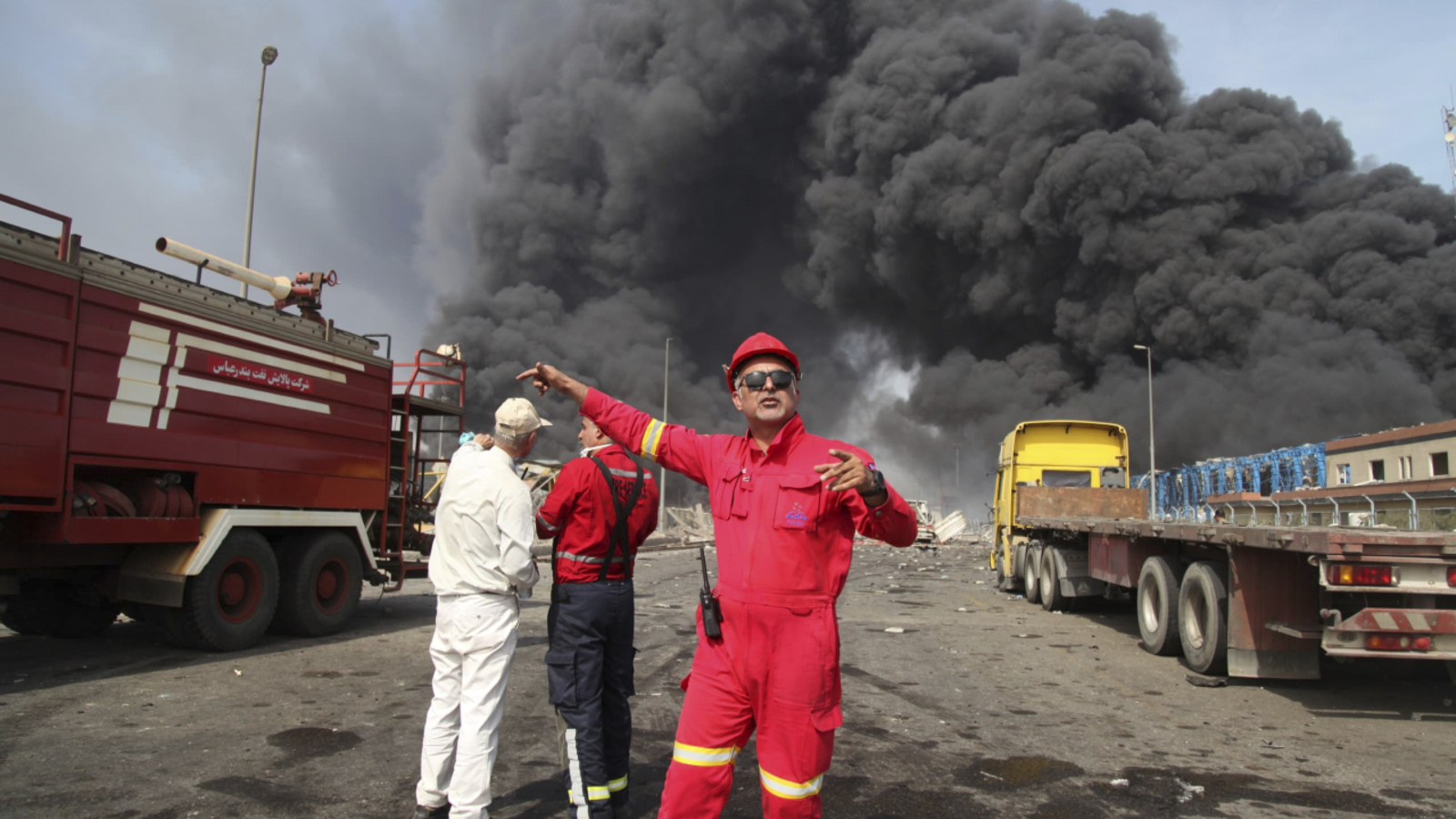A massive explosion tore through the Shahid Rajaee part of Bandar Abbas Port, Iran’s largest commercial port, on Saturday, killing at least 28 and wounding at least 800. The port is on the southern coast of Iran on the Persian Gulf, occupying a strategic location near the Strait of Hormuz and is the location of the main base of the Iranian Navy. A fifth of world oil output passes through the Strait of Hormuz. Last year, the port handled 85 percent of the country’s shipping container traffic, as well as a large portion of its oil, according to the Port and Maritime Organization.
The fire was still burning on Sunday and a government spokeswoman, Fatemeh Mohajerani, said it would be impossible to positively establish the cause before the fire is extinguished, “but so far what has been determined is that containers were stored in a corner of the port that likely contained chemicals which exploded.”Hossein Zafari, a spokesman for Iran’s crisis management organisation, appeared to blame Saturday’s explosion on the poor storage of chemicals in containers.
“The cause of the explosion was the chemicals inside the containers,” he told Iran’s Irna. “Previously, the director general of crisis management had given warnings to this port during their visits and had pointed out the possibility of danger.”
Iran’s heath ministry, citing airborne toxic pollutants, declared a state of emergency in Hormozgan province, asking people to stay indoors, keep windows closed and wear masks.
Iran’s National Iranian Oil Refining and Distribution Company said the explosion at the port was not related to the refineries, fuel tanks, or oil pipelines “associated with the company in that area.” This came after Iranian official media reported that the blast occurred after a fuel tanker at the port “exploded for unknown reasons.”
The New York Times quoted a source with ties to Iran’s Islamic Revolutionary Guard Corps, speaking on condition of anonymity to discuss security matters, as saying that what exploded was sodium perchlorate — a major ingredient in solid fuel for missiles.The Financial Times reported in January that China had shipped the chemical to Iran, whose stocks of missile propellant were depleted last year when it and its proxy, Hezbollah, launched missiles at Israel.
In May 2020, Iran launched an unsuccessful; cyberattack targeting Israel’s water infrastructure, and poison the water by increasing chlorine levels in water flowing to residential areas. Israel responded by launching a cyberattack that shut down the Shahid Rajaee port—one of two major shipping terminals in Bandar Abbas.





